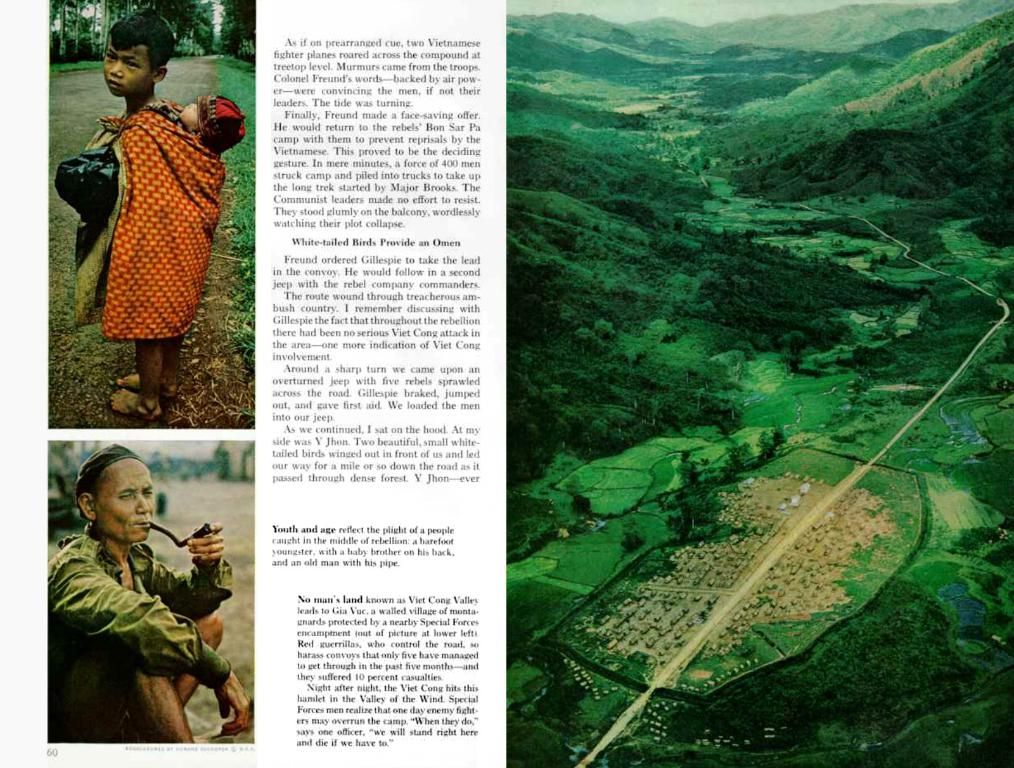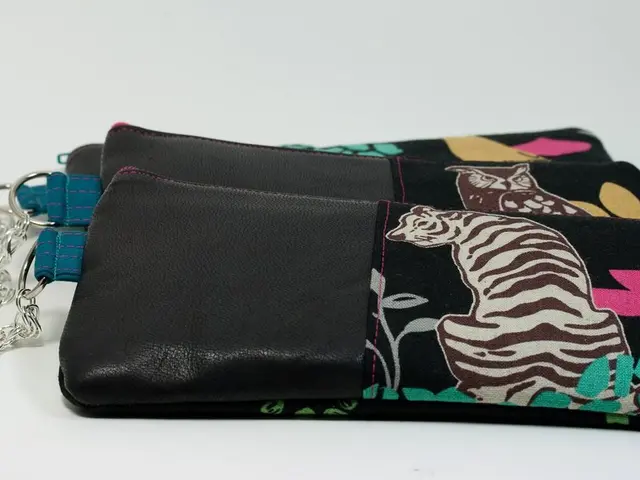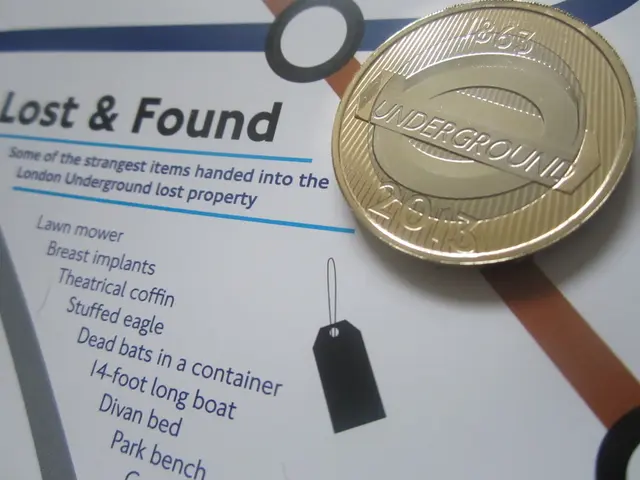Immersive Tales Unveiled at 2025 Tribeca Festival Through Virtual Reality, Augmented Reality, and Artificial Intelligence
2025 Tribeca Frenzy winds down this week in NYC, filled with films, Q&As, industry chats, and live performances. But this year's fest goes beyond the usual suspects, diving into virtual worlds with a new program, "In Search of Us."
For over a decade, Tribeca has embraced the unknown, exploring storytelling through virtual and augmented reality, and other fresh tech. The programs may have been limited, but the art was captivating. Pieces that wrapped viewers in giant spaces, blanketing them in computer-generated landscapes or time-lapse photos, were breathtaking.
"In Search of Us" gathers 11 projects under one banner, all exploring the effects of humanity's challenges: artificial intelligence, climate change, war, school shootings, transphobia, you name it. The projects with the biggest impact are those with the most powerful and emotional narratives.
Take, for instance, "Fragile Home," a mixed-reality creation by Ondřej Moravec and Victoria Lopukhina. Don a pair of goggles, and you'll find yourself walking through a cozy Ukrainian living room, past a dinner table and a purring cat. Look out the window, and you'll see a tranquil landscape - then, in an instant, it's pulverized by a bombardment, the home beyond recognition with Russian forces' "Z" graffiti littering the walls.
The simplicity of the setup leaves a lasting impression - a reminder of the destruction happening worldwide. Yet, the objects that survived - items with personal significance to only a few - become symbols of resilience for many.
"Scent," directed by Alan Kwan, is a first-person cinematic game where you become a dog traipsing through a landscape, catching glimpses of people being attacked and killed. In between avoiding bombs and gunfire, you help guide the souls of the deceased to reincarnation. It's a meditative voyage, a glimpse into cruel acts skewing the fabric of humanity and nature.
With "There Goes Nikki," viewers equipped with a tablet can stroll through an augmented-reality garden, filled with virtual flowers, listening to the late poet Nikki Giovanni recite her poem, "Quilting the Black-eyed Pea (We're going to Mars)." It's been crafted by Idris Brewster, Michele Stephenson, and Joe Brewster.
Want to know if artificial intelligence is smarter, dumber, or just plain snarky? Then give "AI & Me: The Confessional and AI Ego" a whirl. The directors, Daniela Nedovescu and Octavian Mot, invite you to strap into a chair and let AI analyze you, based on a camera capture. Find out what AI thinks you're all about, and prepare to come face-to-face with some biting commentary.
Other projects, like "Uncharted" (VR by Kidus Hailesilassie), fuse dance, spoken word, and AI data to create a spiritual exploration of pan-African storytelling. "New Maqam City" (by MIPSTERZ) lets you become a DJ, experimenting with drum beat patterns that resonate in Muslim communities worldwide, leading to transcendent vibes.
"The Innocence of Unknowing" (created by Ryat Yezbick and Milo Talwani through the MIT Open Documentary Lab) dissects media coverage of mass shootings, immersing you in a simulated classroom setting.
The haptic VR experience "In the Current of Being" (by Cameron Kostopoulos) secures you in a chair, applying electrodes to your hands, arms, and torso. The presentation tells the true story of a survivor of electroshock conversion therapy, delivering powerful shocks in sync with images of feminine beauty. It's an ironic testament to the horrors of the discredited pseudoscience.
"The Power Loom and The Founders Pillars" (by Lesiba Mabitsela, Meghna Singh, and Simon Wood) is a two-part project, combining site-specific AR experiences at the New York Stock Exchange with a memorial to enslaved people once sold at the Wall Street Slave Market during the 18th century.
While the main Tribeca Festival concludes on June 15, "In Search of Us" runs through June 29, in partnership with Onassis ONX and Agog: The Immersive Media Institute. For more details and ticket information, click here.
- Tribeca Festival
- Virtual Reality
- David Morgan - David Morgan is senior producer for ourNews.com and the Emmy-winning "our News Sunday Morning." He penned books like "Monty Python Speaks" and "Knowing the Score" and edited "Sundancing" on the Sundance Film Festival.
- The Tribeca Festival, beyond its traditional offerings, delves into virtual reality with a new program titled "In Search of Us," which presents various projects that tackle issues such as artificial intelligence, climate change, and human challenges.
- In the project "Fragile Home," viewers can experience a cozy Ukrainian living room before witnessing a bombardment that devastates the home and serves as a reminder of global destruction.
- "Scent," a first-person cinematic game directed by Alan Kwan, immerses players as a dog traversing a landscape, witnessing acts of violence and guiding the souls of the deceased to reincarnation.
- "AI & Me: The Confessional and AI Ego," directed by Daniela Nedovescu and Octavian Mot, allows users to sit in a chair and receive insights about themselves based on a camera capture, revealing AI's observations in a sometimes biting commentary.








